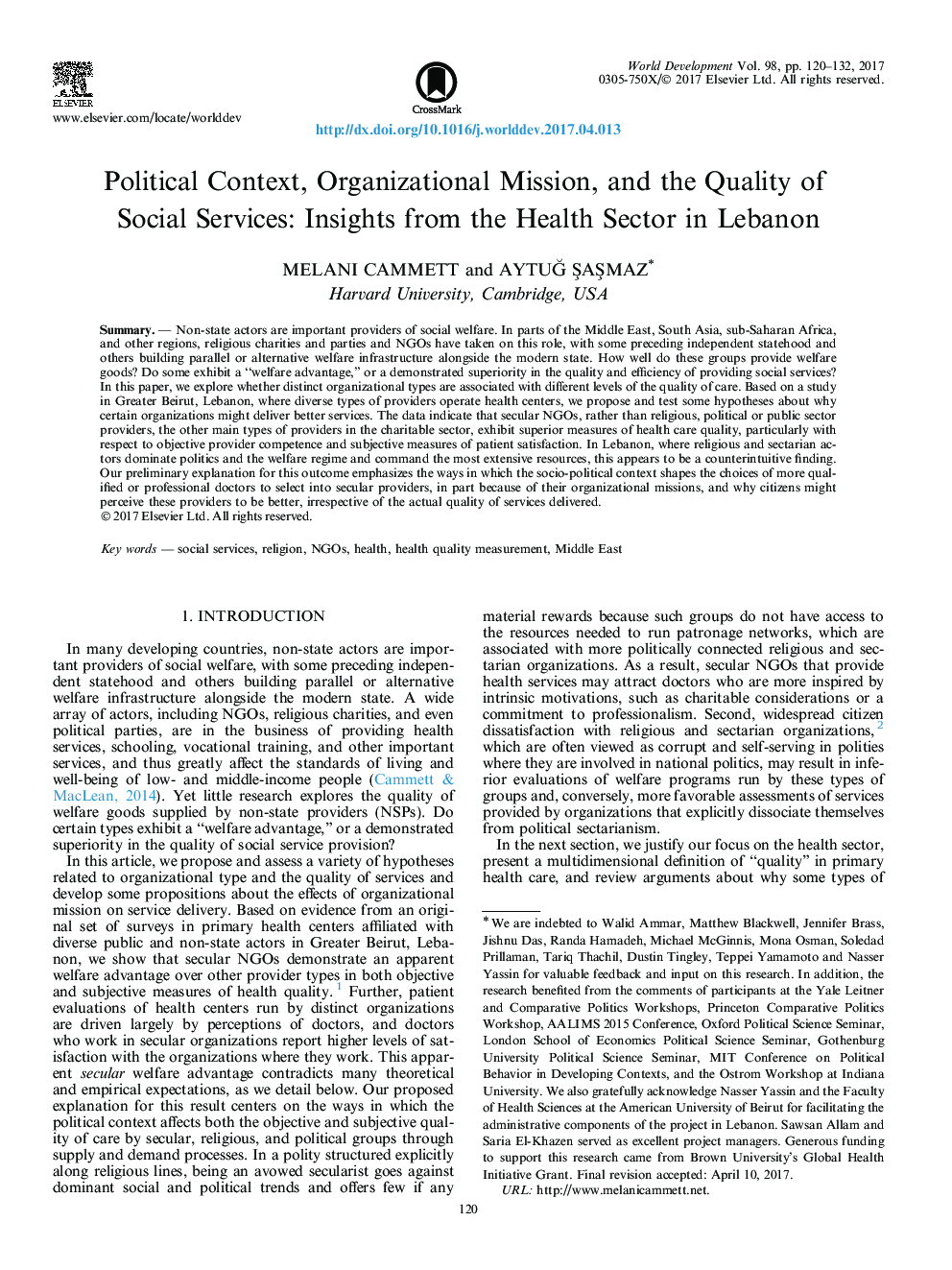| Article ID | Journal | Published Year | Pages | File Type |
|---|---|---|---|---|
| 5105134 | World Development | 2017 | 13 Pages |
Abstract
Non-state actors are important providers of social welfare. In parts of the Middle East, South Asia, sub-Saharan Africa, and other regions, religious charities and parties and NGOs have taken on this role, with some preceding independent statehood and others building parallel or alternative welfare infrastructure alongside the modern state. How well do these groups provide welfare goods? Do some exhibit a “welfare advantage,” or a demonstrated superiority in the quality and efficiency of providing social services? In this paper, we explore whether distinct organizational types are associated with different levels of the quality of care. Based on a study in Greater Beirut, Lebanon, where diverse types of providers operate health centers, we propose and test some hypotheses about why certain organizations might deliver better services. The data indicate that secular NGOs, rather than religious, political or public sector providers, the other main types of providers in the charitable sector, exhibit superior measures of health care quality, particularly with respect to objective provider competence and subjective measures of patient satisfaction. In Lebanon, where religious and sectarian actors dominate politics and the welfare regime and command the most extensive resources, this appears to be a counterintuitive finding. Our preliminary explanation for this outcome emphasizes the ways in which the socio-political context shapes the choices of more qualified or professional doctors to select into secular providers, in part because of their organizational missions, and why citizens might perceive these providers to be better, irrespective of the actual quality of services delivered.
Related Topics
Social Sciences and Humanities
Economics, Econometrics and Finance
Economics and Econometrics
Authors
Melani Cammett, AytuÄ ÅaÅmaz,
